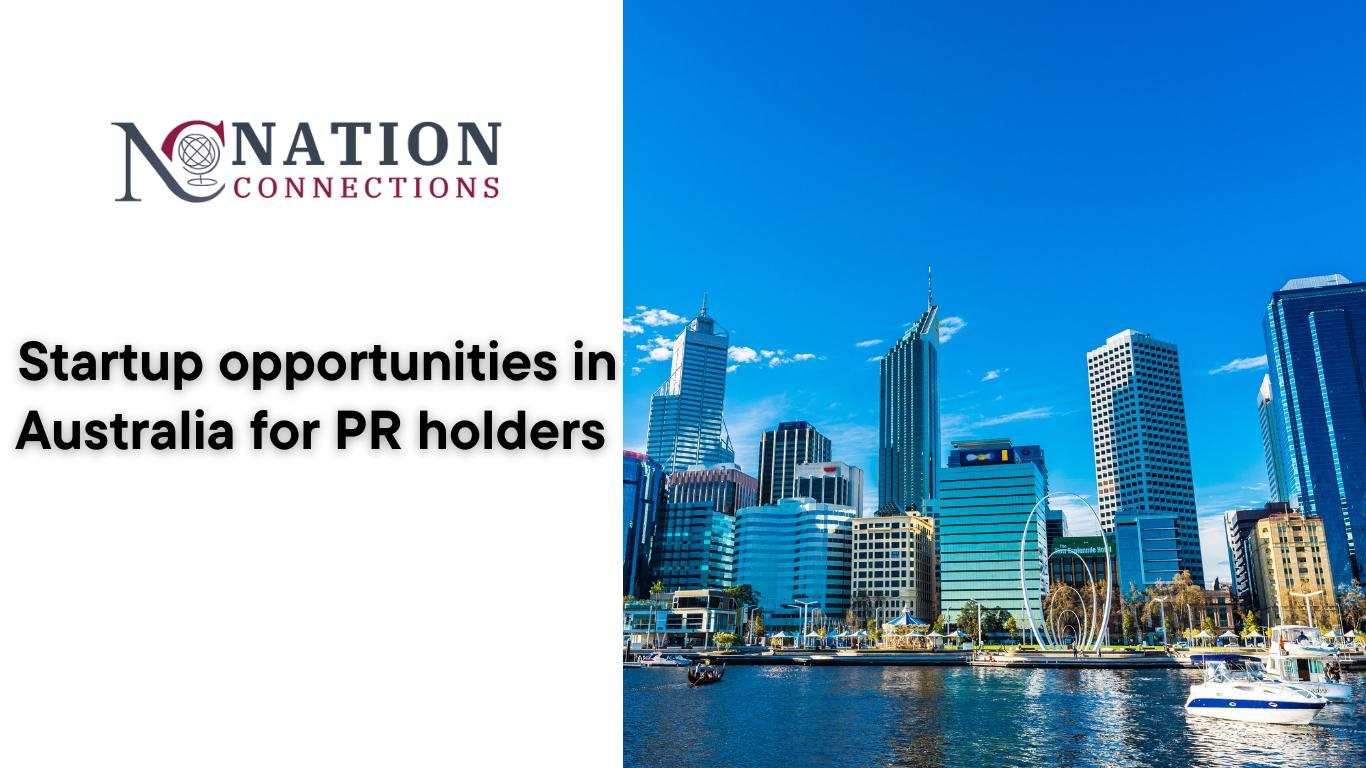
Australia offers a fantastic environment for permanent residents (PR holders) launching startups. With its stable economy, supportive government policies, and multicultural society, it’s a fertile ground for innovation. PR holders enjoy the same business rights as citizens, access to numerous grants, and a stable legal framework.
Several industries in Australia stand out for emerging PR entrepreneurs:
Technology & Digital Innovation
Australia’s tech ecosystem is booming. Cities like Sydney and Melbourne are thriving hubs for SaaS, fintech, and AI enterprises—with strong government subsidies and R&D incentives.
CleanTech & Sustainable Solutions
With climate change initiatives on the rise, sustainable agriculture, renewable energy, and recycling technologies are in high demand. Programs like the Clean Energy Finance Corporation (CEFC) provide funding support.
HealthTech & MedTech
The global health landscape makes Australia a prime spot for telehealth, biotech, and eldercare startups. With top-tier research institutions, it’s a rich environment for healthcare solutions.
AgriFood Innovation
As a major agricultural exporter, Australia supports agtech advancements—like precision farming, vertical farming, and food traceability—with strong regional acceleration programs.
Education & EdTech
Australia attracts a massive international student population. Startups focused on remote learning, vocational training, and vocational-to-industry skill transformation stand to gain traction.
Although PR holders already have permanent residency, many pursue additional startups visas like:
Business Innovation Stream (Subclass 188):
For applicants with business acumen and investment capacity.
Entrepreneur Stream (Subclass 188):
Ideal for those funded by investors with innovative business ideas. A solid pathway toward PR.
Global Talent Independent Program:
Designed for individuals with extraordinary skills, especially in tech and deep-tech fields.
Australia offers a range of grants specifically supporting early-stage startups:
Accelerating Commercialisation Grant:
Helps transition research into commercial products with funding up to $1 million.
R&D Tax Incentive:
Offers a refundable tax offset of up to 43.5% for eligible R&D.
State-Based Grants:
Various grants are available depending on your state—e.g., Victoria’s LaunchVic initiative and New South Wales’ Minimum Viable Product (MVP) Program.
Start-up Hubs & Co-working Spaces:
Incubators like Fishburners (Sydney) and CIC (Melbourne) provide workspace, mentorship, and access to funding networks.
Accelerators & Mentorships:
Programs such as CSIRO ON and BlueChilli accept early-stage startups and support tech and digital commerce.
Investor Networks:
Groups like Sydney Angels, Melbourne Angels, and Artesian invest across high-growth sectors. Crowdfunding platforms (e.g., Pozible) also offer capital access.
Choose the appropriate entity (e.g. Pty Ltd company) based on scale, liability, and tax implications.
Ensure you comply with sector-specific requirements like ASIC registration and ATO tax rules.
Conduct local market research to align your product with Australian consumer needs, values, and preferences.
Joining startup events, hackathons, and pitch nights is crucial for building exposure and connecting with mentors, investors, and collaborators.
Canva – Started in Sydney in 2012; now a global design tech leader.
Brighte – Focused on consumer financing for clean energy renovations, raised over A$800 million.
Atlassian – IT service success that began in Sydney; now a software titan.
| Step | Description |
|---|---|
| 1. Validate Idea | Research Australia’s problem spaces and validate your solution. |
| 2. Structure Business | Register your company and ensure legal compliance. |
| 3. Access Funding | Apply for grants and build investor pitch decks. |
| 4. Join Startup Hub | Leverage incubators or accelerators for mentorship. |
| 5. Official Launch | Set up operations, hire your first team, and begin marketing. |
Who can apply for Australian startup grants?
PR holders and citizens with eligible ventures may apply. Grant criteria differ by program; check state-specific eligibility.
Do I need local investors or can global backers help?
Local investors help with market access and compliance; global backers also welcome if you align with regulatory norms.
How competitive are Australian grants and accelerators?
They are selective but transparent. With a strong pitch, traction, and team, success rates increase.
Can bootstrapping be a good alternative?
Definitely! Many startups self-fund initially, using grants or lean operations before scaling.
Are there programs for remote startups?
Yes—accelerators often accept non-local participants. There are also virtual communities for networking.
How long until I see traction?
Timeline varies depending on product type and sector. Many tech startups show initial traction within 12–18 months.
Australia offers a rich landscape for PR holders launching startups: diverse funding, strong legal foundations, world-class talent, and supportive ecosystems. Sectors like tech, cleantech, medtech, agri‑food, and edtech thrive under these conditions.
If you’re a PR holder ready to launch your own venture, begin with market validation, secure a suitable structure, tap into grants/programs, and immerse yourself in startup hubs and investor networks. Reach out anytime if you’d like help tailoring your idea, preparing a pitch deck, or navigating grant applications.



